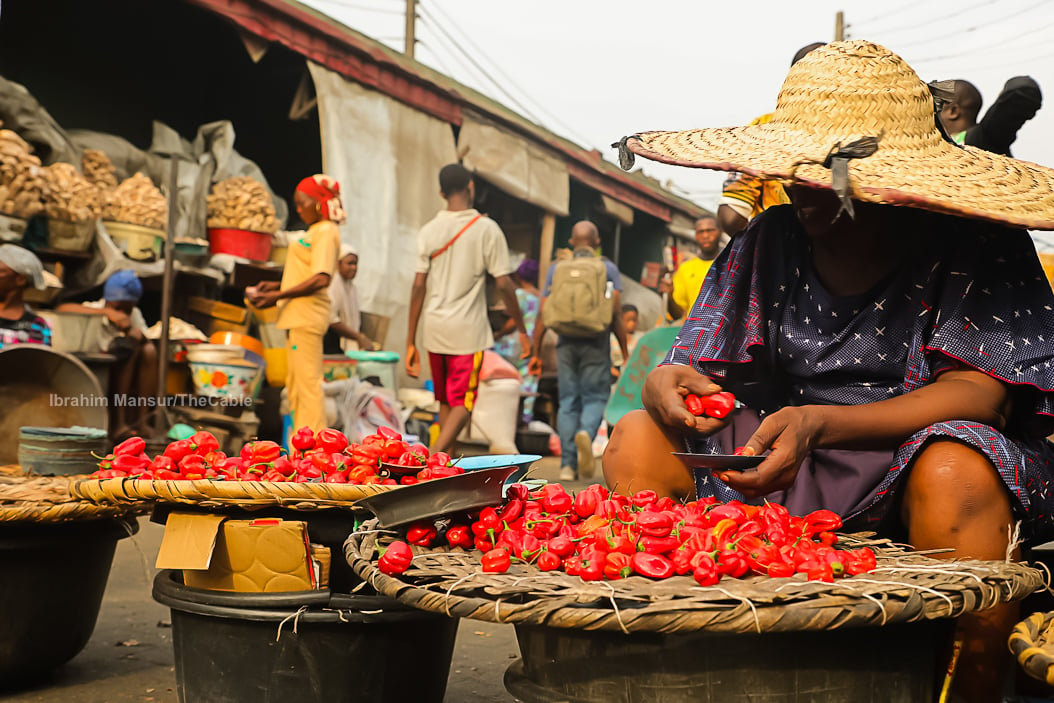The National Bureau of Statistics (NBS) says Nigeria’s headline inflation rate dropped to 16.05 percent in October 2025.
The NBS announced the increase in its consumer price index (CPI) report on Monday.
The latest inflation rate is the seventh consecutive decline this year.
The NBS said the current inflation rate, on a year-on-year basis, “was 17.82% lower than the rate recorded in October 2024 (33.88%)”.
Advertisement
“This shows that the Headline inflation rate (year-on-year basis) decreased in October 2025 compared to the same month in the preceding year (i.e., October 2024), though with a different base year, November 2009 = 100,” the bureau said.
“On a month-on-month basis, the Headline inflation rate in October 2025 was 0.93%, which was 0.21% higher than the rate recorded in September 2025 (0.72%).
“This means that in October 2025, the rate of increase in the average price level was higher than the rate of increase in the average price level in September 2025.”
Advertisement
FOOD INFLATION RATE DECLINES TO 13.12%
The statistics firm also said the food inflation rate for October 2025 was 13.12 percent year-on-year.
According to the NBS, this is 26.04 percent lower compared to the rate recorded in October 2024 (39.16 percent).
“However, on a month-on-month basis, the food inflation rate in October 2025 was -0.37%, up by 1.21% compared to September 2025 (-1.57%),” the report reads.
Advertisement
“The increase can be attributed to the rate of increase in the average prices of Onions (Fresh), Fruits (Oranges, Pineapple), Shrimp, Groundnuts (Unshelled), Vegetables (Ugu, Okazi leaf), and Meat (Goat meat, Cow tail, Liver), among others.
“The average annual rate of Food inflation for the twelve months ending October 2025 over the previous twelve-month average was 21.96%, which was 16.16% points lower compared with the average annual rate of change recorded in October 2024 (38.12%).”
In the month under review, NBS said food inflation, on a year-on-year basis, was highest in Ogun (20.85 percent), Nasarawa (19.96 percent), and Ekiti (19.70 percent).
On the other hand, the bureau said Akwa Ibom (3.98 percent), Katsina (4.15 percent), and Yobe (4.29 percent) recorded the slowest rise in food inflation on a year-on-year basis.
Advertisement
The agency added that in Bauchi (6.77 percent), Abuja (5.11 percent), and Niger (4.84 percent) recorded an increase in food inflation on a month-on-month basis.
Nigeria’s inflation rate has been slowing down since April this year — with the latest being the seventh consecutive decline.
Advertisement
At its September monetary policy committee (MPC) meeting, the Central Bank of Nigeria (CBN) reduced the interest rate to 27 percent — the first cut in five years — after a sustained decline in inflation.
Advertisement







